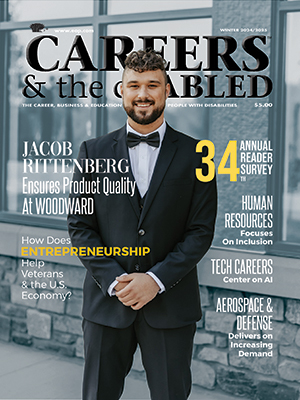


According to the World Health Organization (WHO), by following the 20-20-20 rule, you can help prevent or slow down the progression of myopia, a condition also known as "shortsightedness" or "nearsightedness" where a person cannot see objects far away clearly.
College Support
Students with visual impairments and disabilities can request accommodations through the Disability Services Office, under Briana Juneau on the Accommodations and Disability Services page. Please see the "Visual Impairments" Guide for a list of possible accommodations a student may request for your class, and reflect on how those accommodations might be in use in your class environment. Some solutions are on-site and/or off-campus but this is not a finalized list of options, and students may request something not on the list.
Briana Juneau will contact you in regards to the request from the student and discuss options for accommodations. Supplementary aids and services are not just for the student. Professionals and other staff members can also be provided assistance on behalf of the student, such as specialized training on a device used by a student or specific strategies and techniques needed to support a student. Some options may require additional support from the Academic Support team, such as the Testing Center for scheduling testing/time accommodations, or the Library for obtaining materials or equipment. Here are the contacts in each department:
The Center for Teaching Excellence's primary goal is to support faculty--both full-time and adjunct--in creating enriching, engaging, and effective learning experiences for all students. The Center can help you structure your course around increasing accessibility for all students by helping introduce faculty to audio aids, video software, and course design. Here are the contacts for the CTE:
Accessible Environment Concepts for Courses
Web Accessible Design Concepts for Courses
Community Resources
Teaching Blind Students Certification
Offered by the Institute of Blindness at Louisiana Tech University, this master's and graduate certificate program offers most courses online with an internship and helps prepare teachers for working with students with visual impairments.
Talking Books & Braille Library of Louisiana
An affiliate of the Library of Congress's National Library Service for the Blind and Print Disabled, TBBL provides access to more than 164,000 audio and braille books, 25,000 large-print books, and playback machines to anyone with permanent or temporary disabilities. There is no charge for TBBL, and more than 6,000 Louisianans use the service.
National Resources
Access On Podcast, by the National Federation of the Blind
Hosted by Jonathan Mosen, the Access On podcast features breaking technology news, product demonstrations, reviews, comparisons, and interviews about the fast-changing world of technology. This podcast is updated weekly.
National Center on Accessible Educational Materials
The National Center on Accessible Educational Materials for Learning at CAST provided technical assistance, coaching, and resources to increase the availability and use of accessible educational materials and technologies for learners with disabilities across the lifespan.
National Federation of the Blind
The National Federation of the Blind is the oldest and largest nationwide organization of blind Americans. Through its network of blind members, the organization coordinates many programs, services, and resources to defend the rights of blind Americans, provide information and support to blind children and adults, and build a community that creates a future full of opportunities.
 Journal of Postsecondary Education and Disability (Electronic Resource)
Journal of Postsecondary Education and Disability (Electronic Resource)
 Journal of Blindness Innovation and Research (Electronic Resource)
by
National Federation of the Blind
Journal of Blindness Innovation and Research (Electronic Resource)
by
National Federation of the Blind
 Careers & the disABLED Magazine (Print) Available at Fletcher Library
Careers & the disABLED Magazine (Print) Available at Fletcher Library
 This website is licensed under a Creative Commons Attribution 4.0 International License unless otherwise noted.
This website is licensed under a Creative Commons Attribution 4.0 International License unless otherwise noted.

